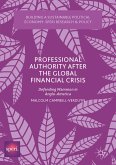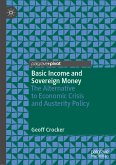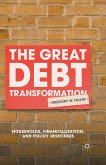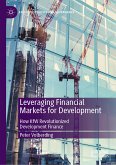The devastating events that beset financial markets in the summer of 2007 led to a huge contraction in global economic output and left the financial and banking systems in the core economies of the United Kingdom, United States and Europe on the brink of destruction. The ensuing fallout from arguably the greatest crisis in the history of financial capitalism has led to a series of protracted global economic and political crises. Over a decade on from the Great Financial Crisis 2008, this book asks: have banks in the UK learned lessons from the financial crisis? Bank learning in the UK after the financial crisis is something we need to know more about. Whether banks are now safer and more likely to aid rather than disrupt the economy are important questions of social relevance. Using original empirical research, this book reveals the learning experience of the UK's 'big four' banks - RBS, Lloyds, Barclays and HSBC and the veracity of these approaches.
Adam Barber is Senior Research Associate at the Future Economies Research Centre at Manchester Metropolitan University, UK.
Dieser Download kann aus rechtlichen Gründen nur mit Rechnungsadresse in A, B, BG, CY, CZ, D, DK, EW, E, FIN, F, GR, HR, H, IRL, I, LT, L, LR, M, NL, PL, P, R, S, SLO, SK ausgeliefert werden.









